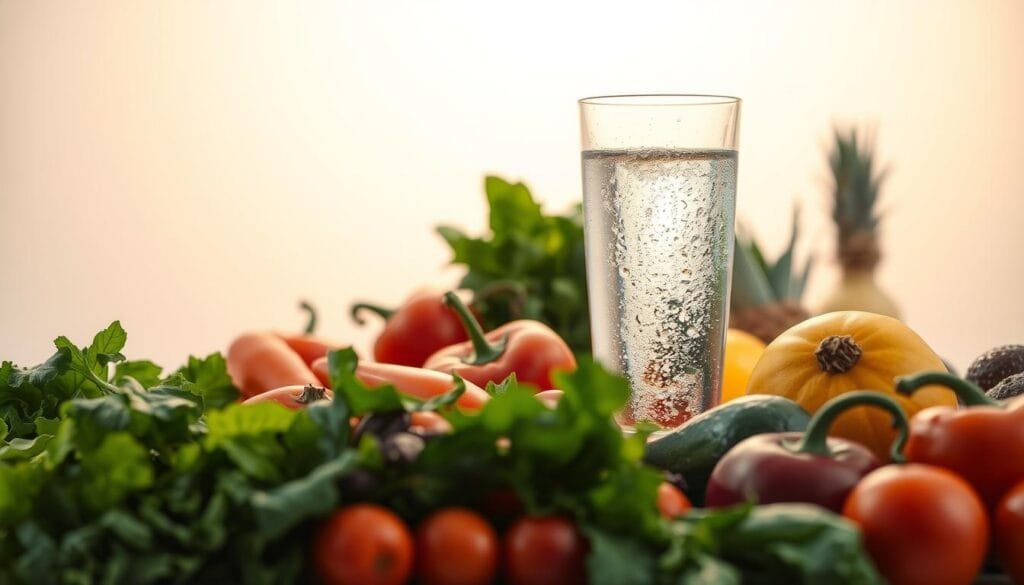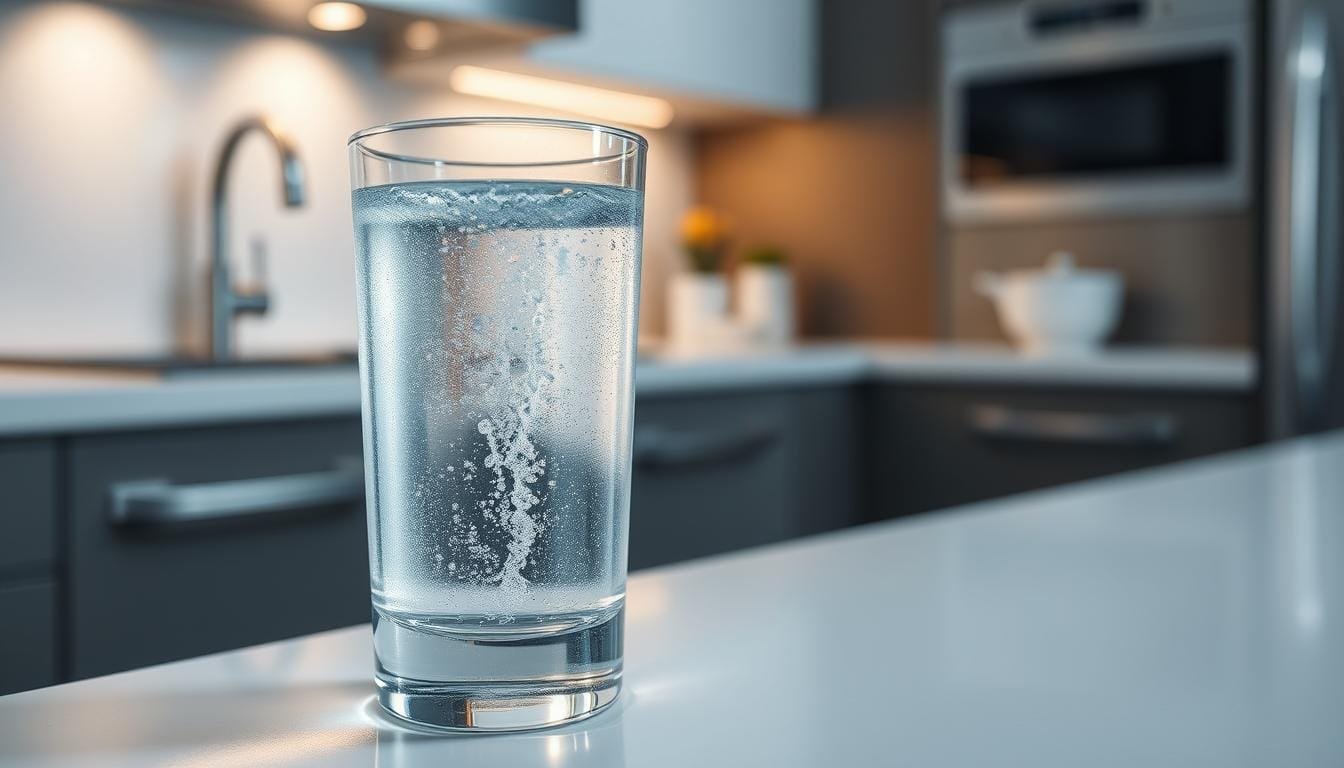Currently Empty: RM0.00
Is it wise to bring sparkling science into the kitchen, or does heat ruin the point?
Wellness Concept explains how added molecular hydrogen in plain water may act as an antioxidant and support digestion, nutrient uptake, steady energy, and faster recovery.
Important: hydrogen is a volatile gas that escapes over time and when heated. High-heat cooking will reduce antioxidant potential, while cold or low-heat uses keep more benefit.
The guide answers whether to use hydrogen water in daily meals today and where to avoid wasting dissolved hydrogen. It offers simple timing tips — for example, add the liquid after hot steps to keep more dissolved gas in the final dish.
For Malaysians seeking personalized product choices, Wellness Concept helps by WhatsApp at +60123822655 during business hours: Monday–Friday 9:30 am–6:30 pm, Saturday 10 am–5 pm, Sunday 10 am–5 pm.
Key Takeaways
- Hydrogen water may offer antioxidant benefits for health and hydration when not exposed to high heat.
- Heat and time reduce dissolved hydrogen, so low-heat or cold uses preserve more benefit.
- Practical swaps include smoothies, cold brews, and post-workout sips rather than boiling steps.
- Add the liquid after cooking to retain more dissolved gas in the final dish.
- Wellness Concept provides local advice and product help via WhatsApp in Malaysia.
What is hydrogen water and how does heat change it?
Molecular hydrogen dissolved in regular water creates a hydrogen-rich drink that some people use for its possible antioxidant properties.
The term refers to ordinary water infused with tiny H2 or hydrogen gas molecules. Molecular hydrogen is nonpolar and very small, so it slips out of solution faster than most dissolved substances.
Molecular hydrogen, antioxidant properties, and why H2 is a volatile gas
Molecular hydrogen may reduce oxidative stress by acting as a targeted antioxidant. Its size helps absorption, but that same size makes it a volatile gas that escapes quickly into air.
Boiling, simmering, and storage: what happens to dissolved hydrogen
Heat speeds up gas loss: simmering and boiling drive dissolved hydrogen out within minutes. After high heat, the liquid still hydrates like plain water but with little hydrogen left.
- Sealed, pressure-packed options hold gas longer until opened.
- Once opened, gas begins to escape, so time matters.
- Prepare, pour, and serve quickly to keep more dissolved hydrogen.
Can you cook with hydrogen water?
Use enriched liquids as a finishing tool rather than a primary heat source.
No-heat and low-heat uses that preserve concentration
Yes—people may use hydrogen-rich water in recipes that skip high heat. Smoothies, overnight oats, chilled soups, salad dressings, and cold sauces keep dissolved gas intact.
When to use regular water versus hydrogen-rich water in the kitchen
For boiling rice, pasta, or long simmering, rely on regular water for the cooking step. Reserve hydrogen-rich water for thinning, finishing, or post-cook dilution so the final dish carries more active molecules.
Timing matters: add after cooking to maximize benefits
Timing is crucial: add hydrogen water off heat and serve quickly. Vigorous boiling, long reductions, and open pots accelerate gas loss and lower hydrogen concentration.
- Pay attention to recipe mechanics and avoid long exposure to air.
- Finish recipes with a splash of enriched liquid just before serving.
How to use hydrogen water in everyday meals without losing the benefits
Smart finishing steps make it easy to enjoy the antioxidant perks of added molecules without changing routine meals.
Breakfast and beverages
Blend a cold smoothie using chilled hydrogen water to keep more active molecules. For cold brew tea, brew with regular water then dilute after cooling.
Grains, soups, and sauces
Cook rice, quinoa and broths in regular water. After a short cool-down, stir in a splash of hydrogen-rich water to finish and taste.
Whisk hydrogen water into cooled dressings, pesto, or yogurt sauces just before serving so dissolved hydrogen stays higher.
Hydration for athletes
Athletes may take about 250 ml 30 minutes before training and 500 ml afterward to support recovery and absorption. This pairing helps the body manage oxidative stress and aids hydration.
Pro prep tips
Prepare small batches and serve quickly. Use airtight containers or a hydrogen water bottle to limit gas loss. Chill ingredients, avoid vigorous shaking, and cap tightly.
Everyday reminder: plain water helps basic hydration. Thoughtful use of enriched liquid can layer antioxidant support into meals without an overhaul.
Health considerations, benefits, and practical limits today
Evidence is growing but modest. Emerging studies suggest mild health benefits tied to dissolved molecular hydrogen. Reported effects include less post-exercise soreness and smoother digestion in some users.

Digestive support, nutrient absorption, and recovery: what research suggests
Medical research notes potential antioxidant actions that may reduce oxidative stress from free radicals. This can help digestion and improve nutrient absorption for certain people.
Key points:
- Some studies report reduced soreness and faster recovery after workouts.
- Antioxidant effects are linked to lower oxidative stress in the body.
- Support for the aging process and overall health remains an active topic in research.
Moderation, safety, and who may benefit
The product is generally considered safe and easy to use as part of daily routines. It should be seen as a complementary option, not a replacement for balanced hydration and diet.
Practical limits arise because molecular hydrogen is a volatile gas. Over time or with high heat, the molecules escape and the specific benefits reduce. Even then, the liquid still hydrates.
Those likely to gain most include active people, busy professionals, and anyone seeking added antioxidant support alongside standard health habits. For tailored advice, check current medical research or consult a healthcare professional.
Getting started in Malaysia with Wellness Concept
Starting in Malaysia is simple when options match routines—portable bottles, countertop generators, or ready cans each suit a lifestyle.
Choosing formats: hydrogen water bottle, generators, or ready-to-drink options
Wellness Concept helps Malaysians compare each type. A portable hydrogen water bottle suits commuters who want fresh servings before a workout.
Countertop generators make small batches at home for people who prefer control. Ready-to-drink cans work for those who want convenience today.
Sealed formats retain dissolved gas until opened. Once opened, pay attention to timing and serve promptly to keep concentration water higher.
Business hours and contact
For product advice, maintenance tips, or basic medical research references, message Wellness Concept on WhatsApp at +60123822655.
- Monday–Friday: 9:30 am–6:30 pm
- Saturday: 10 am–5 pm
- Sunday: 10 am–5 pm
Staff can advise on using hydrogen-rich water to support staying hydrated and the practical benefits for daily health.
Conclusion
The simplest rule: use enriched liquid off the heat and serve quickly to keep more active molecules in the final dish.
Bottom line: people may use benefits hydrogen water in no‑heat or low‑heat steps and add a splash after cooking to preserve hydrogen concentration. For boiling, simmering, and long reductions, regular water is the smarter choice.
These habits help maintain antioxidant properties that may help the body manage oxidative stress from free radicals. Sealed or on‑demand options hold gas until opening, so consume promptly to keep concentration water higher.
Athletes and active people can pair servings around training to support recovery while they stay hydrated. For local product advice in Malaysia, Wellness Concept is available by WhatsApp at +60123822655.
FAQ
What is hydrogen water and how does heat change it?
Hydrogen-rich water contains dissolved molecular hydrogen (H2), a small, volatile gas that acts as an antioxidant in lab and some human studies. When exposed to heat—boiling, simmering, or long storage—dissolved H2 escapes quickly because gas solubility falls as temperature rises. That means hot cooking greatly lowers concentration, while chilled, sealed bottles preserve more dissolved gas.
How do molecular hydrogen’s antioxidant properties work?
Molecular hydrogen selectively targets harmful free radicals and reduces oxidative stress in cells according to emerging research. It does not behave like conventional antioxidants that donate electrons widely; instead, H2 appears to modulate signaling pathways and inflammation, which may support recovery and cellular health when maintained at effective concentrations.
Does boiling or simmering destroy the dissolved hydrogen?
Yes. Boiling and long simmering cause rapid loss of dissolved H2 because heat drives the gas out of solution. Even brief exposure to high temperature can cut concentration significantly. For culinary uses that need hydrogen’s potential benefits, low-temperature or no-heat approaches work better.
Are there no-heat or low-heat kitchen uses that preserve hydrogen concentration?
They are best. Cold or room-temperature applications—cold brew tea, smoothies, sauces added after cooking, and finishing spritzes—retain much more dissolved gas. Quick stirring and immediate sealing or serving also reduce losses caused by diffusion and aeration.
When should regular water be used instead of hydrogen-rich water in cooking?
Use regular water for long boils, stews, baking, or any recipe requiring high heat or extended simmering; hydrogen will be lost early in those processes. Reserve hydrogen-rich water for drinks, finishing touches, and post-cook dilution where the dissolved gas remains available.
Is timing important when adding hydrogen-rich water to dishes?
Timing is crucial. Adding hydrogen-rich water after cooking, as a finishing liquid, or right before serving maximizes retained concentration. For beverages, prepare and serve immediately. For hot foods, add cooled hydrogen-rich water or use it to rehydrate just before eating.
How can hydrogen-rich water be used in everyday meals without losing benefits?
Simple swaps help. Mix hydrogen-rich water into smoothies, cold soups, and dressings; steep cold-brew tea using chilled hydrogen-rich water; top cooked grains or sauces just before serving; and carry chilled bottles for post-exercise hydration to pair with meals.
What are practical tips for prepping and storing to retain dissolved hydrogen?
Use airtight stainless steel or glass bottles, chill water before sealing, avoid shaking or vigorous pouring, and serve quickly after opening. Portable hydrogen water bottles and generators that produce high dissolved H2 can help maintain effective levels when used correctly.
Can athletes benefit from pairing meals with hydrogen-rich water?
Early studies suggest potential benefits for recovery and reduction of exercise-induced oxidative stress. Athletes may find value in using chilled hydrogen-rich water after training and with post-workout meals to support recovery, though individual responses vary and research is ongoing.
What does research say about digestive support and nutrient absorption?
Limited human studies indicate possible improvements in markers of inflammation and metabolic responses, but evidence on direct enhancement of nutrient absorption is sparse. Hydrogen’s main documented effects relate to oxidative and inflammatory pathways rather than digestion mechanics.
Are there safety concerns or limits to using hydrogen-rich water?
Hydrogen gas at concentrations used in drinking water is generally recognized as safe; it is nonflammable at low concentrations and inert in the body. Moderation is sensible—use it as a supplement to, not a replacement for, a balanced diet and medical care. People with specific medical conditions should consult a healthcare professional.
What formats are available and how should a buyer choose between a bottle, generator, or ready-to-drink option?
Choices include portable hydrogen water bottles (built-in generators), countertop generators, and prepackaged hydrogen-rich drinks. Select based on convenience, maintenance, and desired hydrogen concentration. Generators offer on-demand freshness; RTD options are convenient but may lose H2 faster after opening.
Where can someone in Malaysia get guidance or purchase products from Wellness Concept?
Wellness Concept provides local options and advice on hydrogen-rich water formats. For guidance or product inquiries, contact their WhatsApp at +60123822655 during business hours for personalized recommendations and support.


